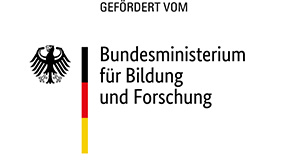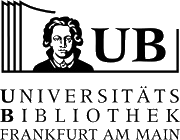Selbstinszenierungspraktiken als Weg zu Stärkenorientierung, Selbstbestimmung und Teilhabe – eine Kollegiale Weiterbildung für multiprofessionelle Akteursgruppen im (inklusiven) Übergang Schule-Beruf
'Selbstinszenierungspraktiken' as a way to strength orientation, self-determination and participation - a collegial training for multi-professional teams at the (inclusive) transition from school to work
DOI:
https://doi.org/10.21248/qfi.136Schlagworte/Keywords
Übergang Schule-Beruf, Stärken, entwicklungsförderliche Didaktik, kollegiale Weiterbildung, Selbstbestimmung, Transition from school to work, strenghts, developmental didactics, collegial training, self-determinationZusammenfassung
Der Beitrag stellt ein Qualifizierungsformat für (multi)professionelle Bildungsakteur*innen zur entwicklungsförderlichen Nutzung von Selbstinszenierungspraktiken vor. Die Konzeption und Entwicklung des Weiterbildungsformats ist im Rahmen eines Forschungs- und Entwicklungsprojekts für Jugendliche in ausbildungsvorbereitenden Bildungsgängen angesiedelt, die einen besonderen Förderbedarf im Zuge des Übergangs von der Schule in die Berufs- und Arbeitswelt aufweisen. Diese sollen durch offene und kreative Selbstdarstellungs- und Erhebungsformate dabei unterstützt werden, ihre Stärken zu erkennen, zu dokumentieren und sichtbar zu machen, sowie hierüber gleichsam für den Übergang Schule-Beruf gestärkt werden.
Wir stellen zunächst den Projektrahmen vor und schärfen in diesem Kontext den Zugang über eine Grundlegung zu Selbstinszenierung sowie deren Potenziale im Kontext der inklusiven Berufsbildung und zur Stärkung der Zielgruppe. Das im Projekt entwickelte Rahmenkonzept bietet eine Orientierung zur standort- respektive bildungsgangbezogenen Anpassung und stellt damit Herausforderungen und einen entsprechenden Qualifizierungsbedarf für Bildungsakteur*innen heraus. Darauf basierend stellen wir die konzeptionellen Grundlagen, die methodische und inhaltliche Ausgestaltung zum Ansatz der ‚Kollegialen Weiterbildung‘ zur entwicklungsförderlichen Nutzung von Selbstinszenierungspraktiken vor und adressieren u. a. das Zusammenspiel von innovativer Entwicklung, Schärfung von Rollen und Kompetenzentwicklung der Bildungsakteur*innen. Abschließend diskutieren wir die konzeptionellen Entwicklungen und den Implementations- und Transferansatz.
Abstract
The article presents a qualification format for multi-professional actors in the educational context on the developmental use of 'Selbstinszenierungspraktiken' (which means a combination of practices for self-awareness, self-realisation and self-acceptance in a process which we are developing in our project). The concept and development of the further education format is located within the framework of a research and development project for young people with wide-ranging needs in pre-vocational education units at the transition from school to work. They will be supported in recognizing, documenting and showing their strengths through open and creative self-expression and survey formats, as well as being strengthened for the transition from school to work.
First, we present the project framework and clarify the approach by a theoretical grounding of ‚Selbstinszenierung‘ (similar to a combination of self-awareness, self-realisation and self-acceptance) as well as its potentials in the context of inclusive vocational education by strengthening the target group. The developed framework provides a basis for the adaptation of the concept to a specific location or educational programme and highlights challenges and qualification needs for actors in the educational context. We present the conceptual basis, the methodological and content-related design of the collegial training approach on the developmental use of 'Selbstinszenierungspraktiken'. We address the interaction of innovative development, clarification of roles and competence development of actors in the educational context. Finally, we discuss the conceptual developments and the implementation and transfer approach.
Downloads
Veröffentlicht
Ausgabe
Rubrik
Lizenz
Copyright (c) 2024 Heike Kundisch, H.-Hugo Kremer, Franziska Otto

Dieses Werk steht unter der Lizenz Creative Commons Namensnennung - Keine Bearbeitungen 4.0 International.



